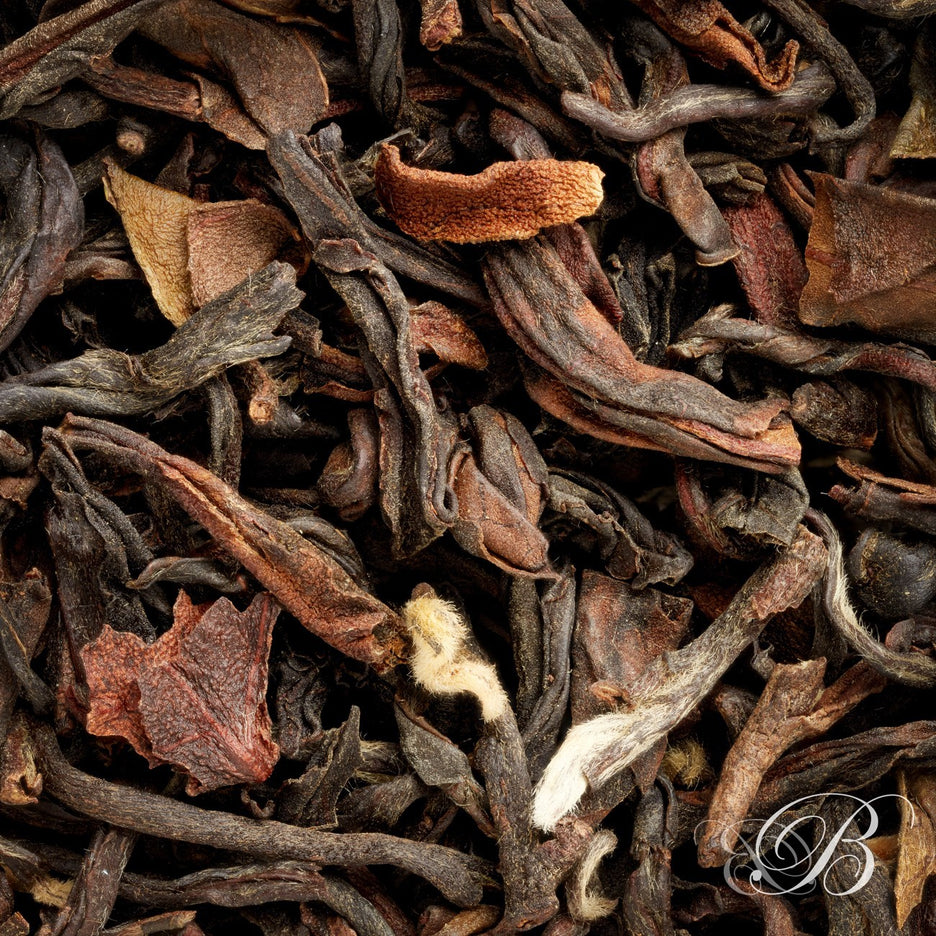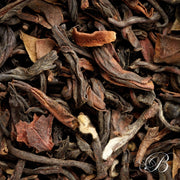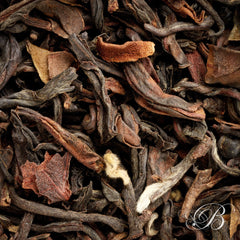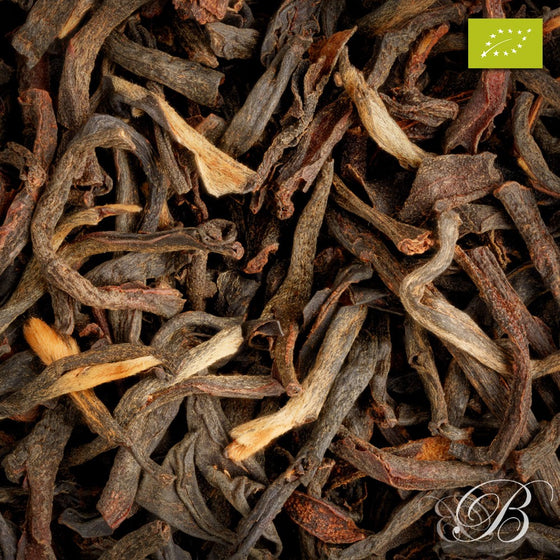
The Betjeman & Barton soul supplement
You may also like
Last viewed products
Get ready for the holidays with Betjeman and Barton!



Darjeeling Makaibari F.O.P
100% secure payment
3 free samples with each order
Fast and free delivery for purchases over €65
Located at the very South of the Province, the small biodynamic plantation of Makaibari offers a Darjeeling tea with citrus notes.
In Bengali, Makaibari means "cornfield," a nod to the history of these lands once dedicated to subsistence farming, long before tea plants came to cultivate them. Founded in 1859, Makaibari is one of the oldest tea gardens in Darjeeling, and one of the few to have been planted and managed for over 150 years by an Indian family, the Banerjee, a unique case in a region long marked by British colonial influence.
Nestled in the foothills of the Himalayas, on steep slopes bordered by primeval forests, the estate benefits from exceptional terroir. Here, mists rise from the valleys each morning, summers remain mild, and winters impose their vegetative rest: ideal conditions that give Makaibari teas their inimitable signature, all finesse and brilliance.
Makaibari is also famous for its "moonlight plucking": on certain full moon nights, the gardens come alive for a leaf harvest by moonlight. This rare ritual, reserved for select batches, gives rise to teas of remarkable subtlety and vibrancy, underscoring the estate's pursuit of excellence.
And Rajah Banerjee, a visionary pioneer, not only transformed Makaibari into an organic and fair trade garden: he cultivated a real community there, reforested the estate, and initiated educational and solidarity projects, making tea a vector of human and environmental progress.
Our House is deeply attached to Makaibari because this garden embodies our core values: excellence in selection and expertise, the generosity of sharing, a commitment to human connection and solidarity, and the creativity that drives us to explore and reinvent. Through its teas, Makaibari offers much more than exceptional taste: each leaf tells a story of care, respect for nature, and conviviality, resonating with our quest for emotion, pleasure, and humanity in every cup.
Food and tea pairings
This Darjeeling tea elevates a citrus-cured salmon gravlax with its delicate freshness and vibrant notes. Its natural balance of liveliness and sweetness echoes the acidity of the zest, without masking the subtlety of the fish. The tea's floral and lemony aromas interact elegantly with the melt-in-your-mouth texture. Served warm, Makaibari complements this dish, highlighting the lightness and purity of the flavors for a truly refined experience.
Recipe based on Darjeeling Makaibari black tea
Makaibari tea reveals its full culinary potential in a delicately infused risotto. Just a few tea leaves steeped in the broth are enough to infuse the rice cooking water with a veil of sweet citrus and fresh forest floor aromas. This unique fragrance adds character to the dish while respecting its natural sweetness. A touch of Parmesan, a few fresh herbs, and a drizzle of olive oil complete the dish, resulting in a luminous risotto that perfectly balances creaminess and freshness.
10125
Located at the very South of the Province, the small biodynamic plantation of Makaibari offers a Darjeeling tea with citrus notes.
In Bengali, Makaibari means "cornfield," a nod to the history of these lands once dedicated to subsistence farming, long before tea plants came to cultivate them. Founded in 1859, Makaibari is one of the oldest tea gardens in Darjeeling, and one of the few to have been planted and managed for over 150 years by an Indian family, the Banerjee, a unique case in a region long marked by British colonial influence.
Nestled in the foothills of the Himalayas, on steep slopes bordered by primeval forests, the estate benefits from exceptional terroir. Here, mists rise from the valleys each morning, summers remain mild, and winters impose their vegetative rest: ideal conditions that give Makaibari teas their inimitable signature, all finesse and brilliance.
Makaibari is also famous for its "moonlight plucking": on certain full moon nights, the gardens come alive for a leaf harvest by moonlight. This rare ritual, reserved for select batches, gives rise to teas of remarkable subtlety and vibrancy, underscoring the estate's pursuit of excellence.
And Rajah Banerjee, a visionary pioneer, not only transformed Makaibari into an organic and fair trade garden: he cultivated a real community there, reforested the estate, and initiated educational and solidarity projects, making tea a vector of human and environmental progress.
Our House is deeply attached to Makaibari because this garden embodies our core values: excellence in selection and expertise, the generosity of sharing, a commitment to human connection and solidarity, and the creativity that drives us to explore and reinvent. Through its teas, Makaibari offers much more than exceptional taste: each leaf tells a story of care, respect for nature, and conviviality, resonating with our quest for emotion, pleasure, and humanity in every cup.
10125
The Betjeman & Barton soul supplement
Among the treasures of Darjeeling, this rare vintage shines with its subtle citrus notes, prized by connoisseurs. It embodies the excellence and refinement of this exceptional terroir.
You may also like

Assam Jamguri F.T.G.F.O.P.1 Organic
Assam tea with notes of ripe fruit
Add to cart
Last viewed products
Your shopping cart is empty
Discover our selection of teas, herbal teas and accessories
Secure payment
Visa, MasterCard, Amex or PayPal
Free delivery
from €65 of purchases in Metropolitan France
Quality customer service

Free samples
in each order
Newsletter
Sign up and find all our new products, selections and exceptional invitations
Loyalty & Reviews